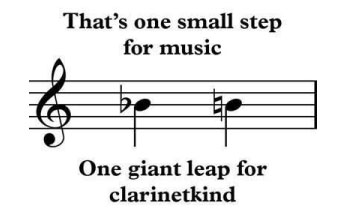I had written about how my vacationing priorities have changed as I have gotten older, and had kids (read about that here). While I appreciate the break, I’ve had to develop a “vacation chops” routine to get my face, and fingers back to performance-ready levels quickly.
This year was a little different for a few reasons – the big winter storm kept us from travelling, I had just come off of my first semester back at university, and I have been focusing on my classical alto, and baritone saxophone playing for a few months.
This meant that my clarinet has been neglected since September. By neglected, I mean that I have been maintaining what I already had under my fingers, and teaching it regularly, but I haven’t been writing for the clarinet, or trying to develop on it. I have a big band gig tomorrow night (January 4th – with the Prime Rib Big Band), where I have several features on the clarinet, and we’ll be performing one at the show.

There are three things that I like to get settled on the clarinet before heading out to a performance after some time off – 12ths (and the break), articulation, and improvising. For 12ths, and over the break exercises, I go right back to Galper Book One, lessons 17-19, and 21-22. Theses are lessons that I assign to my students, but I find them incredibly beneficial to review, and they help lock in my sound.
For articulation, I head into the David Hite Melodious and Progressive Studies book, and start at 18 Expressive Studies Based On Chords (page 12 in my copy). Most of these etudes are arpeggio based, and have lots of common articulation patterns. I like the fact that they aren’t technically challenging, which allows me to focus on how the articulation feels at all volume levels, across most of the clarinet’s range.
I am mostly in situations where I’m expected to improvise. Creating a strong connection between my ears, and what’s coming out of the instrument is important, so I practice improvising. Most of the time, I will pick a scale, or chord to base my improvisation off of, but if I know what material I’ll be working with, I’ll check out melodies, and chord changes to those particular pieces. I also find that working with few boundaries allows my to focus on my sound as well.
For myself, if I follow this “formula”, I know that I can feel comfortable on my instruments, and have a good show. It puts me in a place where I can stay relaxed on the gig, and allow me to get back to my productive routine.
How do you get your chops back after some time off?
Disclosure: The links above are affiliate links. This means that, at zero cost to you, I will earn an affiliate commission if you click through the link and finalize a purchase.